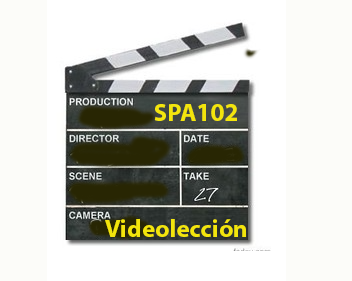1.7: El pretérito- Cambios de ortografía con -CAR, -GAR, -ZAR
- Page ID
- 150569
Verbs with spelling changes in the preterite:
Some verbs require a spelling change in order to maintain consistent pronunciation of their consonants. These spelling changes follow consistent patterns, and are limited to the yo forms.( You can hear the pronunciation of each form by clicking on the play button icon. This will open in a new window.)
- Hard “c” to “qu”. This happens in the yo form of verbs whose infinitives end in -CAR, for example:
- Hard “g” to “gu”. This happens in the yo forms of verbs whose infinitives end in -GAR, for example:
- “Z” changes to “c” before “i” and before “e”. In the preterit this happens in the yo forms of verbs whose infinitives end in -ZAR, for example:
These changes are summarized in the table below. OJO: The spelling change is underlined and the conjugated endings are in bold.
| Subject Pronoun | -CAR: Sacar | -GAR: Pagar | -ZAR: Abrazar |
|---|---|---|---|
| Yo | saqué | pagué | abracé |
| Tú | sacaste | pagaste | abrazaste |
| Ud., él, ella | sacó | pagó | abrazó |
| Nosotros, nosotras | sacamos | pagamos | abrazamos |
| Uds., ellos, ellas | sacaron | pagaron | abrazaron |
Spelling changes, from a different perspective:
Another way of looking at these spelling changes is to see them in the context of the Spanish alphabet: they’re not special irregularities peculiar to any particular tense, they’re just how Spanish spells particular sounds, regardless of when they turn up. If you look at them in terms of syllables, the pattern becomes clearer:
- (The soft “c”): ZA – CE – CI – ZO – ZU
- In Latin American pronunciation the soft "c" is indistinguishable from the “s” (SA – SE – SI – SO – SU). But the letter “z” is never used before the letters “e” or “i”, and switches to a “c” in those positions. So it’s understandable to confuse “sa” and “za” occasionally, but there’s no doubt about when to alternate “z” and “c”: alcanzar (to reach, achieve), alcancé, alcanzaste, alcanzó, etc.
- (The hard “c”): CA – QUE – QUI – CO – CU
- Notice that the syllables “ce” and “ci” already are used for spelling the soft “c”, so the hard “c” needs to switch to the “qu” before “e” and “i”. Except for foreign words that use the letter “k”, there’s only one way to spell these syllable sounds in Spanish, no matter what the word is: jaqueca (migraine), coquí (Puerto Rican tree frog), sacar, saqué, sacaste, sacó, etc.
- (The soft “g”): JA – GE/JE – GI/JI – JO – JU
- This explains the spelling change that you remember from the present tense, with an -ER verb needing to preserve its soft “g” in front of the “o” of the yo ending: escoger, escojo, escoges, escoge, etc. But in the preterit, the endings for -GER verbs don’t stray into “j” territory: escoger, escogí, escogiste, escogió, etc.
- (The hard “g”): GA – GUE – GUI – GO – GU
- Since the “ge” and “gi” are already taken for the soft “g”, the hard “g” adds a “u”. This occurs in a number of words that are probably familiar to you, for example, guitarra and guerrilla. Why do -GAR verbs only change their spelling in the yo form of the preterit? Because the yo form is the only one with the vowel “e” (and no preterit endings of -AR verbs start with an “i”): entregar (to hand in), entregué, entregaste, entregó, entregamos, entregasteis, entregaron.
Videolección
By clicking on the icon below, you can hear a video lesson about spelling changes associated with -CAR, -GAR, and -ZAR endings.
¡A practicar!
This page excerpted, remixed, and adapted from 3.7: El pretérito by Erica Brown, Alejandra Escudero, María Cristina Montoya, & Elizabeth Small (OER SUNY), licensed under CC BY 4.0, and from 5.6: El pretérito de los verbos regulares and 5.6.1: Práctica- El pretérito de los verbos regulares by M. Barrio De Mendoza, K Gutiérrez, H.Ho, C. Lin, & A Stere Lugo through ASCCC Open Educational Resources Initiative, licensed under CC BY-NC 4.0.


